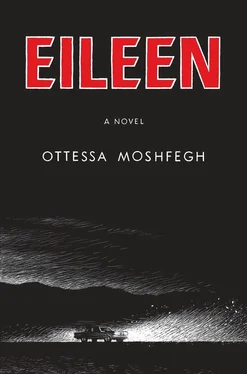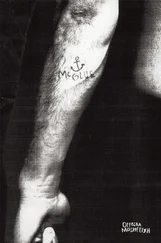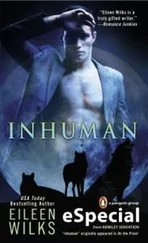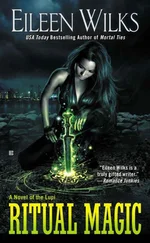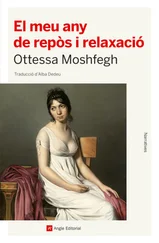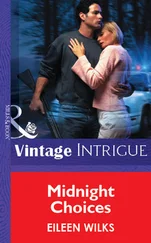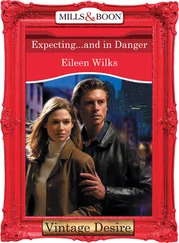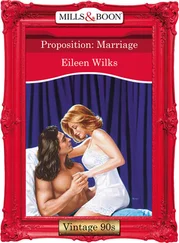I pulled onto the shoulder and rolled my window down. “I’m sorry, officer,” I told the cop. “It gets stuffy in here, and my heating is broke.”
I remember the policeman was young, thin faced with bags under his large pale blue eyes. He reminded me of a newscaster, asked the usual questions. I tried to speak with my mouth closed, worried he would smell the alcohol on my breath.
“Oh, my gosh,” I said, rubbing my eyes. “I’m so, so sorry.” I looked up at him imploringly. “My father is sick and I was up all night at his bedside. It’s a very difficult time.” This was the excuse I thought would solicit the most compassion. But as I said the words, my throat clenched like a fist and a well of tears rose to my eyes, as though I believed in my pathetic little story, as though I cared so deeply for my father and was just heartbroken that I might have to face life without him. I was just beside myself, barely able to steer my car straight. It was very dramatic. I ground the heels of my palms into my eye sockets and cleared my throat. The policeman looked unamazed.
“Tell you what,” he said. He let me go once I promised to pull off at the next exit and get a cup of coffee. I assented. “I wouldn’t want anything bad to happen right when your father needs you most.” What a big heart he had. I put on my death mask and nodded. I have always hated the police. But I felt compelled to obey them then. So I did take the next exit.
I found myself on a street called Moody. Of course I did. A Christmas banner hung above the road, hitched between two electric poles. A woman in a bright red parka loped by me, pulled by a pair of German shepherds as though on a sled. I didn’t like dogs. Not because they scared me — they didn’t — but because their deaths were so much harder to take than people’s. My dog since childhood, Mona, a Scottish terrier, the runt of its litter, passed away the week before my mother died. Without hesitation I can say my heart was broken as much over the loss of that dog as by the death of my own mother. I imagine I’m not the only person on Earth to feel that way, but for a long time the feelings seemed shameful. Perhaps had I a Dr. Frye to confess this to, I might have uncovered something which would have brought me relief, a new perspective, but I never did. Anyway, I don’t trust those people who poke around sad people’s minds and tell them how interesting it all is up there. It’s not interesting. My mother was mean and that dog was nice. One doesn’t need a college degree.
The coffee shop on the corner of Moody Street had windows dotted with cutout elves and a Santa face. Blinking Christmas lights and holly trimmed the door. I ordered a cup of hot tea and sat, still angry and worried about the car. It would not be a reliable getaway vehicle when I eventually chose to make my great departure, I realized. Given the cold and the drowsiness I’d felt just minutes after driving with the windows rolled up, I knew I would not get farther than Moody Street in that car without freezing or fainting when it came time to leave for good. So this little day trip had been something of a road test, a dress rehearsal. And the car had failed. I was demoralized, to say the least. I’d have to wait until spring. And even then, would I really go?
The waitress stood and fixed her apron strings and chewed her gum. Her uniform was mustard yellow with a white collar. Over it she wore a pink sweater with shiny black beads embroidered along the neck. They looked like busy ants swarming at her throat. I remember it well. My own sweater was a black wool cardigan, pilly and snagged. My pants were sprinkled with coffee stains across the lap. I pulled my parka back on, suddenly self-conscious and angry. Why should I have cared who saw me in a bad sweater, who might have judged my outfit in a nearly empty coffee shop? I didn’t care. Let people stare at my shabbiness. Let them throw rocks at my unwashed hair. I was better than the lot of them. I’d leave them all behind to kiss the seat I’d sat on. I told myself these things, and to further convince myself, I ordered some chocolate ice cream. I watched the waitress labor with the scooper, arm deep in a freezer, pink sweater pushed up over her dainty elbows. She served it in an oblong metal dish with whipped cream, chopped nuts and a maraschino cherry on top. I spooned it into my mouth like a starving orphan, let the chocolate drip down over my chin. I didn’t care. When I gulped the hot tea afterward my teeth screeched and my head nearly exploded. I don’t remember what ration of whiskey my father had allowed me before he sucked the bottle dry the night before, but he must have been feeling generous. Even at my flimsy weight I could usually tolerate quite a bit of booze. Most weekends I wasn’t nearly as shaky.
With the ice cream sloshing remorsefully inside my stomach, I paid and went outside, feeling very sorry for myself. I dragged my heel across a pane of ice while waiting at the crosswalk, then stomped the edge of my boot down on it. It cracked, turned milky, but didn’t crumble. Funny the things one remembers. I spent most Sundays holed up at home or driving to and from Randy’s house while my father was out communing with God or whatever he thought he was doing at church. Only occasionally did Aunt Ruth come inside when she dropped him off after Mass. When she did, she’d hold her purse tight, keep her gloves on, squinch her lips shut so hard they turned white. “Get your father a cup of coffee” is the most she’d ever say to me. My father would simply ignore me when Aunt Ruth was around. “Hire someone to come and clean,” she told him once. “Your children are obviously busy doing other things.” I was standing in the doorway as they spoke, my father settling into his kitchen recliner, Aunt Ruth sitting at the table, careful not to touch anything.
“Eileen takes after her mother,” my father had replied. “Good for nothing.”
“Charlie, don’t speak ill of the dead.”
“Don’t be such a goody-goody,” he snorted. “All that woman ever did was spend my money and snore.”
It was true, my mother had liked to shop. And she snored so loudly sometimes it sounded like a locomotive chugging through the house. As a child, I often dreamt of fast trains, smoke tufting through black nights spangled with stars, sailing across the country, away from X-ville, tracks rumbling beneath me, nearly shaking me awake.
“Does the girl ever clean? Does she cook?” my aunt asked.
“I don’t eat much,” my father answered in my defense. “My gout.” When they finally saw me standing there, my aunt just clucked her tongue and fiddled with the handle of her pocketbook.
“Take out the trash, Eileen,” said my dad, as though to appease his sister. I took out the trash. I always just swallowed my tears, held up a mask of cold stone when I felt bad. I was glad to have gone for that drive that Sunday. I may have fallen short of my goal of reaching Boston, but at least I’d avoided another painful interaction with my aunt. She had flat, silvery hair and a freckled forehead that gave her a sort of boiled and sick look, like a pickled egg. I really didn’t like her.
I couldn’t tell you the name of the town I’d ended up in, but Moody Street was perfectly pleasant and festive. I meandered up a block of charming storefront displays. Everything was closed, of course. Back then you were hard-pressed to buy a stick of gum on Sundays. On my way back to the car, I passed a narrow alley and saw a teenage couple kissing—“petting” as we called it. I remember the scene clearly. I caught sight of them the moment the girl’s tongue slid into the boy’s mouth. I was so impressed. The soft pink color of the girl’s tongue, the way the clean winter light reflected on its sleek surface, and the contrast in its color and texture to the pure, aquiline face, so beautiful. Sitting in my car, I couldn’t shake the image — such erotic force seemed impossible. Of course I’d heard of French kissing and seen the lolling heads of young people necking on the 1-H lookout, but this view of it was as though I’d had X-ray lenses. It struck me just how forward the girl was, how gutsy, how bold to kiss that way, and so of course I thought to myself that I’d never have the guts to be anything like her. The boy was impassive, eyes shut, mouth wide, arms enfolding the girl, the collar of his plaid wool jacket flipped up. It all haunted me and compounded my headache and fatigue into severe anxiety. Sexual excitement nearly always made me feel sick. At home I could have taken a scalding bath, washed vigorously, but I was far from home. So I opened the car door and leaned out and scooped up a fistful of crystalline snow and stuffed it down the front of my trousers and into my underpants. It was very cold and very painful, but I left it there to melt as I drove. I rolled down the windows. How I didn’t catch pneumonia is beyond me.
Читать дальше
